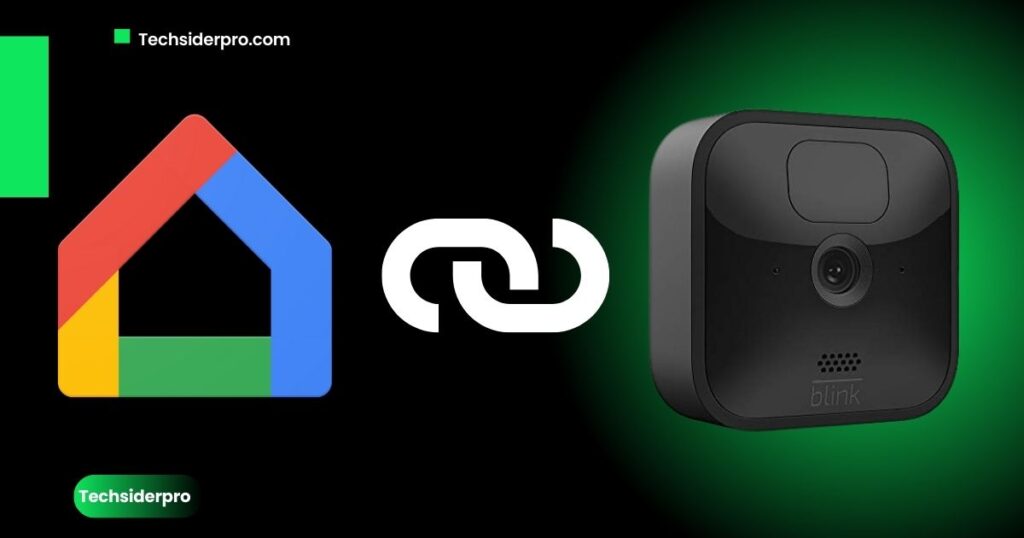
As smart home technology evolves, the integration of various devices, like security cameras and voice assistants, is becoming a necessity. Many users wonder If Blink works with Google Home. In this guide, we’ll answer that question while exploring the key benefits of this integration, such as voice control, hands-free convenience, centralized smart home management, and enhanced home security. While Blink, an Amazon-owned product, does not natively integrate with Google Home, third-party solutions like IFTTT and SmartThings make it possible.
Compatibility and Setup
Is Blink Compatible with Google Home?
Blink cameras are primarily designed to work with Amazon’s Alexa, but with advancements in smart home tech, third-party platforms like IFTTT (If This Then That) allow Blink to work with Google Home. Although there’s no native support, users can still achieve functional integration. To get started, ensure both Blink cameras and Google Home are on the same Wi-Fi network.
How to Connect Blink to Google Home
To link your Blink cameras with Google Home using IFTTT, follow these steps:
- Install and Configure IFTTT: Head to your device’s app store, download the IFTTT app, and sign up for an account.
- Link Blink to IFTTT: In the IFTTT app, search for the Blink service and connect it by logging into your Blink account.
- Connect Google Assistant to IFTTT: Similarly, search for Google Assistant in IFTTT and link it to your Google account.
- Create Applets: Set up automation triggers, such as arming the Blink cameras by saying, “Ok Google, arm Blink.”
Ensuring that both your Blink cameras and Google Home app are updated to their latest versions will help ensure smooth functionality.
Benefits of Connecting Blink to Google Home
Voice Control
Once integrated, you can control your Blink cameras and doorbells using simple voice commands. For example, you can arm or disarm the system without accessing the Blink app, making it a convenient option when multitasking.
Hands-Free Convenience
Voice control provides the added benefit of hands-free operation, especially when you’re busy cooking, cleaning, or even out of the room. Simply say, “Hey Google, arm Blink,” and let the system handle the rest.
Centralized Smart Home Control
By integrating Blink into Google Home, you can streamline your smart home system, making Google Home the central hub for controlling various devices. This provides a more cohesive home security experience, allowing you to manage everything from one app or through voice commands.
Troubleshooting and Limitations
Common Issues & Fixes
One common issue users encounter is Wi-Fi connectivity problems. If Blink devices lose connection with Google Home, restarting your Wi-Fi network or updating your Blink firmware may resolve the issue. Ensure both devices are connected to the same network and consider making IP reservations for more stable connectivity.
Additionally, some users have reported compatibility issues when using Blink cameras with Google’s Nest Wi-Fi Pro devices. In such cases, it’s helpful to check for updates or consider using a different router.
Limitations of Third-Party Integration
Since Google Home does not natively support Blink, the integration through IFTTT may not be as seamless as native systems. You may experience slight delays or limited functionality compared to using Alexa.
When to Contact Support
If you encounter more complex issues, such as hardware malfunctions or advanced troubleshooting needs, it’s best to reach out to Blink’s customer support for further assistance.
Advanced Integrations and Automation
Using IFTTT to Maximize Blink and Google Home Integration
With IFTTT, you can create personalized automation to streamline the control of your Blink cameras. For example, you can create a trigger that automatically arms your Blink cameras when you say, “Ok Google, secure my home.” This automation enhances your smart home experience by adding layers of convenience and security.
Alternative Smart Cameras Compatible with Google Home
Google Nest Cameras
For users seeking a more integrated experience, Google Nest cameras offer native support with Google Home. These cameras provide advanced features like facial recognition and seamless voice command control via Google Assistant.
Other Alternatives
If Blink’s limited integration is a deal-breaker, consider Arlo cameras, which offer high-quality video and smooth compatibility with Google Home. Another option is Ring cameras, which can also be integrated with Google Home through third-party solutions. These alternatives provide more comprehensive features and better native integration.
Conclusion
Although Blink cameras do not natively integrate with Google Home, third-party platforms like IFTTT and SmartThings offer a workaround for achieving this connection. By doing so, you gain enhanced control over your home security with voice commands and centralized smart home management. However, if native integration is essential to your smart home setup, cameras from brands like Google Nest and Arlo may offer a better fit.